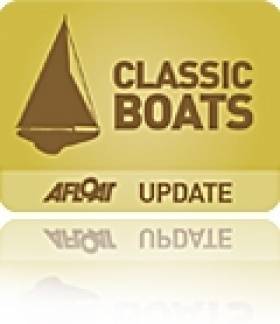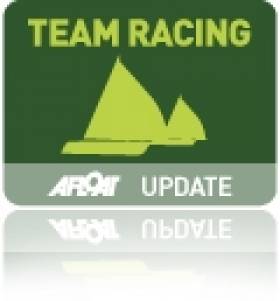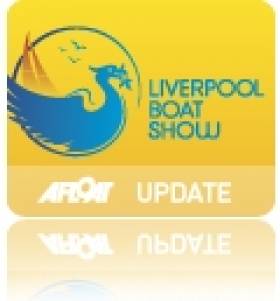Displaying items by tag: West Kirby Sailing Club
#international12 – Ireland will be at the forefront of centenary dinghy celebrations to be held in the UK next week in an historic class still active in Ireland.
The 1913 designed international 12–foot dinghy is having a centenary regatta on a marine lake at West Kirby, near Liverpool from the 28th to 30th of June.
30 boats from six countries are competing including three Irish boats sailed by Aiden Henry, Billy Bebbington, Margret Delaney, Gerry Murray, and George Miller.
'A practical dinghy, good to row, easy to sail (though difficult to sail well), very capable as a tender, it is, all in all, the perfect all round dinghy', say enthusiasts.
The 12s held an Irish national Championship at the Royal St. George YC in 2011 and a look back through Irish sailing archives reveals strong ties to many Irish Yacht Clubs (See images below).
At that championship boats sailed with the original International 12 foot rig – with no foredeck, no jib, and with a dipping lug rig – and with the Dublin Bay rig of a small foredeck with washboards, jaws on the bottom of the gaff and a small jib.
The Delany family boat 'Cora' No. 8 will be attending West Kirby. Steered by Margaret Delany who is currently based in the UK, but, as the boat has an Irish sail number, she will be classified as an Irish boat.
Cora has undergone substantial rebuilding at Norfolk Boatbuilding School. She has returned to the original rig and has been receiving advice from the International 12 foot sailors from Holland.
George Miller from the Royal St. George Yacht Club has attended several Intrernational 12 regattas in Italy and elsewhere in recent years.
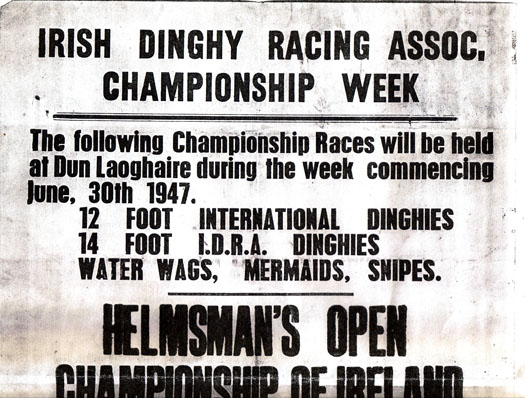
The boats were originally called the British Racing Association 12–footer and were later awarded Olympic status. They were also awarded international status about the same time.
There are currently strong fleets in Turkey, Japan, Holland, Italy and smaller fleets in the UK and some other countries.
Irish fleets were orignally strongest in Royal Munster Yacht Club (documented in RCYC's history), Seapoint Sailing Club, Sutton Dinghy Club, Howth Sailing Club and Clontarf Yacht and Boat Club.
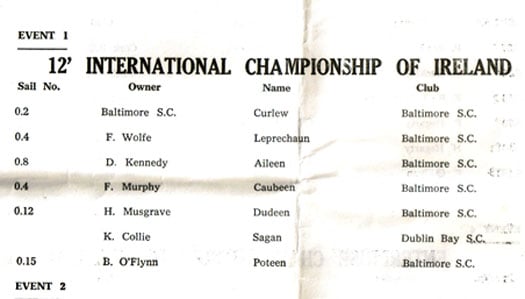
An entry list of the Irish Int 12 foot championship at IDRA Dinghy Week in Baltimore, West Cork year 1960 or 1964
A former Olympic class in 1920 and 1928, it became relatively obscure outside Holland, Italy, and Japan.
Although superseded by modern dinghies there has been a revival with new boats being built.
Below is a contemporary text from the foreunner to Afloat magazine describing how the 12s evolved.
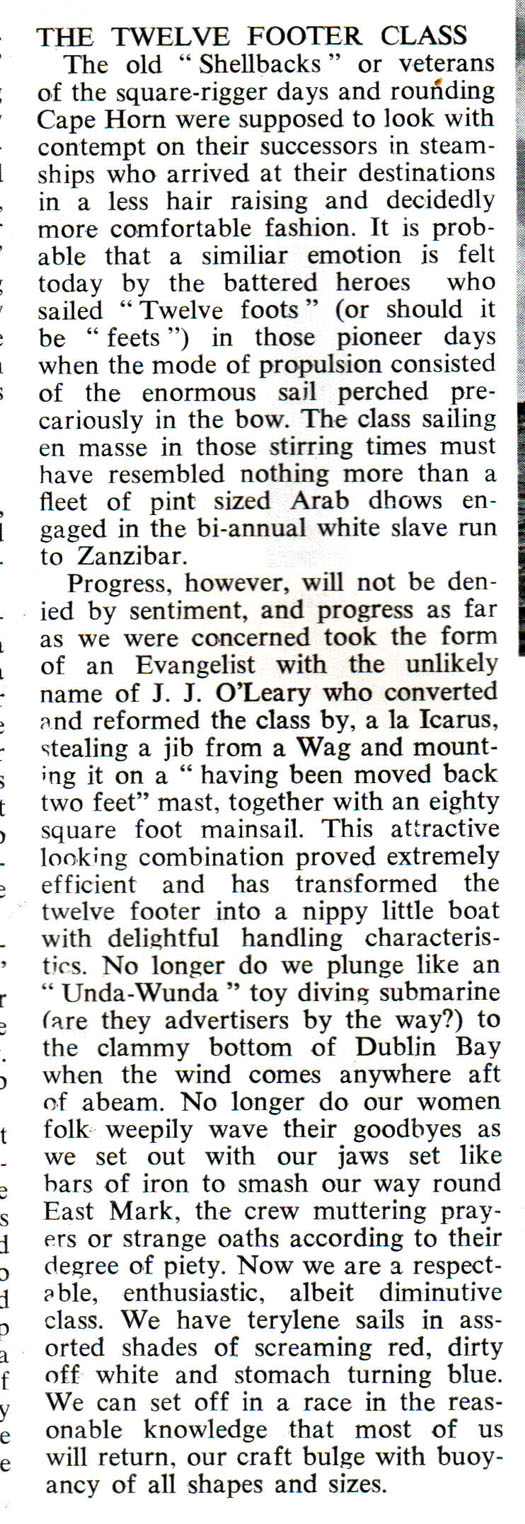
Racing got underway on time and in perfect conditions on the first day of the British Team Racing Championship at West Kirby Sailing Club, where 32 teams from across the UK, Ireland and the USA have congregated on the marine lake for three day's of high intensity team racing action. With all the top teams who have qualified for the upcoming Team Racing World Championship in Ireland competing here this weekend, this year's Wilson Trophy is set to be one of the most competitive in the event's sixty-two year history.
There can be few better venues than West Kirby to run a team racing event of this scale. The marine lake has 360 degree access allowing spectators unlimited vantage points from which to observe the action. Racing takes place in a fleet of thirty-six equally matched and colour-coded Firefly dinghies provided by the organisers. A twenty-five strong armada of international umpires are on hand to oversee the racing and administer instant justice in the form of on the water penalties. Over 350 races will be completed before the elimination system narrows the field down to just the top two teams the Grand Final, to be sailed in front of a packed and noisy grandstand on Sunday afternoon.
Midway through the afternoon, with four rounds completed only three teams, West Kirby Hawks, Oxford & Cambridge and Dream Team unbeaten with a 4 - 0 scoreline. With just one loss each was NYYC Team Extreme, Woonsocket Rockets, Buns & Ammo, and Wessex Exempt. Early in the fifth round West Kirby Hawks matched up against Dream Team, with the Hawks immediately taking control of the race before consolidating their advantage to take a 1,2,3, win. Oxford & Cambridge also dismissed NYYC Team Extreme with a 1,2,6 combination, leaving just the Hawks and Oxford & Cambridge unbeaten at that point.
The sixth and final round of the day saw a pitched battle of a race between the Hawks and Oxford & Cambridge for first day bragging rights. The teams were locked together for the entire race, with control switching back and forth on every leg. Even as the two teams approached the finish line, the match was still undecided, with the last few maneuvers of the leg seeing Oxford & Cambridge pull off a 1,3,6 combo to take the win.
So with six rounds sailed on the first day the standings are as follows:
1st Oxford & Cambridge - 6 wins
2nd West Kirby Hawks - 5 wins
3rd Woonsocket Rockets - 5 wins
4th Dream Team - 4 wins
5th NYYC Team Extreme - 4 wins
Racing at the 2011 Wilson Trophy for the British Team Racing Championship at West Kirby Sailing Club continues tomorrow with more Swiss League Rounds.
Full results at the regatta website here
Mersey's Biggest Sailing Event to be Staged at Liverpool Boat Show
About 150 boats will compete in a series of spectacular races on each of the two weekends of the show, which takes place from April 29 to May 8 next year.
Up to three races will be held each day on the weekends of April 30 and May 7, with classes for modern racing yachts, ultra-fast multi-hulls, local classes and traditional nobbys.
The regattas – comprising the Royal Dee Yacht Club Spring Regatta and the Liverpool Yacht Club Kindred Clubs Regatta – will be one of the main highlights of the Liverpool Boat Show, which takes place in the splendid surroundings of the Albert Dock.
Competitors from across the UK and Ireland are expected to take part in the regattas, which will see boats racing against each other on courses in front of the Albert Dock.
Today organisers urged enthusiasts and clubs to submit their entries for the races to secure a place in one of the most spectacular sailing events of the year.
Alastair Soane, chair of the race committee, said: "This will be the biggest sailing event for probably 70 or 80 years on the River Mersey and interest is already very high."
Alastair Soane, a past Commodore and President of Liverpool Yacht Club who sits on the steering committee of the boat show, added: "We already have expressions of interest from clubs and individuals in Scotland, Wales and Ireland and we are keen to get representation from the sailing fraternity right across the UK, including the South coast.
"The combination of the festival atmosphere of the show and the spectacle of the racing will make these truly unique events and we'd urge potential participants to register as soon as possible."
A number of North West clubs are supporting the regattas, including Liverpool Yacht Club, the Royal Mersey Yacht Club, the Royal Dee Yacht Club, West Kirby Sailing Club, Wallasey Yacht Club, Dee Sailing Club, Blundell Sands Sailing Club, Liverpool Sailing Club, Hoylake Sailing Club, West Lancs Sailing Club and the Nobby Association.
Mr Soane said: "The entire North West sailing community is throwing its weight behind the Liverpool Boat Show and we are determined to make it a show like no other and to showcase to a whole new generation the pleasure and benefits to be had from sailing."


























